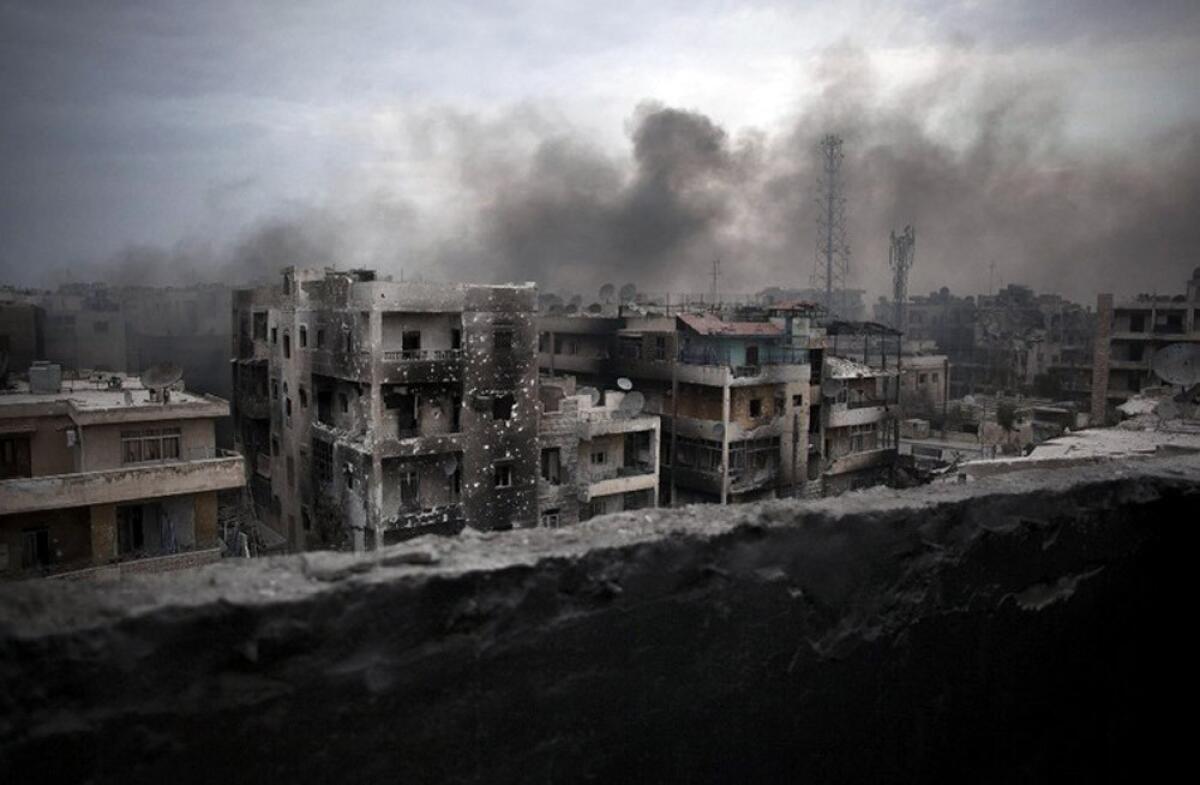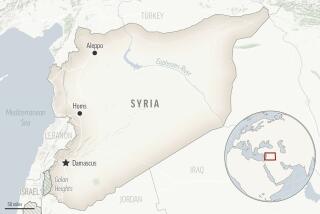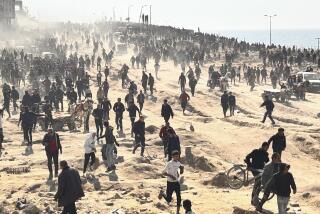Syria’s Assad agrees to truce in city of Aleppo, U.N. envoy says

The Syrian government of President Bashar Assad is willing to suspend bombardment of opposition-held areas of the northern city of Aleppo for six weeks as part of a renewed diplomatic push in the war-ravaged nation, according to the special United Nations envoy to Syria.
Speaking to reporters in New York, Staffan de Mistura, the U.N. mediator, said Damascus had agreed to a six-week pause in aerial and shelling attacks on Aleppo, which has been divided between rebel and government control for more than 2 1/2 years. In return, he said, the opposition would be asked to suspend its shelling, mainly mortar and rocket fire.
The veteran diplomat spoke after briefing the Security Council on the development late Tuesday.
There was no immediate reaction from the Syrian government or from the myriad of rebel forces, including many hard-core Islamist fighters, operating in Aleppo. There was also no official word on when such a limited cease-fire might begin and what conditions would have to be met before either side stopped its bombardment.
Given the deep distrust between the two sides, even a trial cease-fire agreed to by all parties would probably be viewed as a major achievement in a conflict that began nearly four years ago and shows no signs of ending. Some localized cease-fires have held in Syria, but others have broken down amid allegations of bad faith.
The U.N. envoy, who met recently with Assad in Damascus, has long pushed the idea of “local freezes” as a means to roll back hostilities in the Syrian conflict. However, De Mistura has stressed that the idea is a modest one given the entrenched nature of the Syrian conflict, which has become a proxy war between outside powers supporting and opposing Assad’s government.
“I have no illusions because, based on past experiences, this will be a difficult mission to be achieved,” De Mistura said. “Facts on the ground will prove if the freeze holds and can be replicated elsewhere.”
Aleppo, once Syria’s economic hub, has been largely destroyed in the conflict. Many once-vibrant neighborhoods have been reduced to piles of rubble as both sides in the conflict have mounted relentless attacks. Most of the city’s 2 million people have fled.
In recent days, activists have reported scores of casualties on both sides as pro-government forces have mounted an offensive meant to cut off rebel-held parts of the city.
Last week, De Mistura angered some Syrian opposition activists when he said Assad was “part of the solution” for reducing violence in the country. The armed opposition has insisted that Assad must step down as part of any political settlement of the conflict. The United States and its allies have also insisted that Assad must leave office.
Assad has rejected calls that he step down and insists his government is fighting “terrorists” financed and armed from abroad.
The Syrian war has resulted in more than 200,000 deaths, forced millions from their homes and destroyed entire towns and neighborhoods. The conflict has also sown instability throughout the volatile region and left vast tracts of Syrian territory under the control of Islamic militants.
Those militants include the Al Qaeda-affiliated Nusra Front and Islamic State, an Al Qaeda breakaway faction that is the target of an ongoing U.S.-led bombing campaign in Syria and Iraq.
Follow McDonnell on Twitter at @mcdneville for news out of the Middle East
More to Read
Start your day right
Sign up for Essential California for news, features and recommendations from the L.A. Times and beyond in your inbox six days a week.
You may occasionally receive promotional content from the Los Angeles Times.






